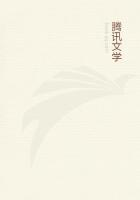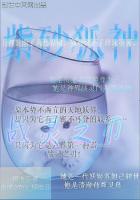Now I would advise you, if you have any wish to pray, to fast, or to make foundations in churches, as they call it, to take care not to do so with the object of gaining any advantage, either temporal or eternal. You will thus wrong your faith, which alone bestows all things on you, and the increase of which, either by working or by suffering, is alone to be cared for. What you give, give freely and without price, that others may prosper and have increase from you and your goodness. Thus you will be a truly good man and a Christian. For what to you are your goods and your works, which are done over and above for the subjection of the body, since you have abundance for yourself through your faith, in which God has given you all things?
We give this rule: the good things which we have from God ought to flow from one to another and become common to all, so that every one of us may, as it were, put on his neighbour, and so behave towards him as if he were himself in his place. They flowed and do flow from Christ to us; He put us on, and acted for us as if He Himself were what we are. From us they flow to those who have need of them; so that my faith and righteousness ought to be laid down before God as a covering and intercession for the sins of my neighbour, which I am to take on myself, and so labour and endure servitude in them, as if they were my own; for thus has Christ done for us. This is true love and the genuine truth of Christian life. But only there is it true and genuine where there is true and genuine faith. Hence the Apostle attributes to charity this quality: that she seeketh not her own.
We conclude therefore that a Christian man does not live in himself, but in Christ and in his neighbour, or else is no Christian: in Christ by faith; in his neighbour by love. By faith he is carried upwards above himself to God, and by love he sinks back below himself to his neighbour, still always-abiding in God and His love, as Christ says, "Verily I say unto you, Hereafter ye shall see heaven open, and the angels of God ascending and descending upon the Son of man" (John i. 51).
Thus much concerning liberty, which, as you see, is a true and spiritual liberty, ****** our hearts free from all sins, laws, and commandments, as Paul says, "The law is not made for a righteous man" (1 Tim. i. 9), and one which surpasses all other external liberties, as far as heaven is above earth. May Christ make us to understand and preserve this liberty. Amen.
Finally, for the sake of those to whom nothing can be stated so well but that they misunderstand and distort it, we must add a word, in case they can understand even that. There are very many persons who, when they hear of this liberty of faith, straightway turn it into an occasion of licence. They think that everything is now lawful for them, and do not choose to show themselves free men and Christians in any other way than by their contempt and reprehension of ceremonies, of traditions, of human laws; as if they were Christians merely because they refuse to fast on stated days, or eat flesh when others fast, or omit the customary prayers; scoffing at the precepts of men, but utterly passing over all the rest that belongs to the Christian religion. On the other hand, they are most pertinaciously resisted by those who strive after salvation solely by their observance of and reverence for ceremonies, as if they would be saved merely because they fast on stated days, or abstain from flesh, or make formal prayers; talking loudly of the precepts of the Church and of the Fathers, and not caring a straw about those things which belong to our genuine faith. Both these parties are plainly culpable, in that, while they neglect matters which are of weight and necessary for salvation, they contend noisily about such as are without weight and not necessary.
How much more rightly does the Apostle Paul teach us to walk in the middle path, condemning either extreme and saying, "Let not him that eateth despise him that eateth not; and let not him which eateth not judge him that eateth" (Rom. xiv. 3)! You see here how the Apostle blames those who, not from religious feeling, but in mere contempt, neglect and rail at ceremonial observances, and teaches them not to despise, since this "knowledge puffeth up." Again, he teaches the pertinacious upholders of these things not to judge their opponents. For neither party observes towards the other that charity which edifieth. In this matter we must listen to Scripture, which teaches us to turn aside neither to the right hand nor to the left, but to follow those right precepts of the Lord which rejoice the heart. For just as a man is not righteous merely because he serves and is devoted to works and ceremonial rites, so neither will he be accounted righteous merely because he neglects and despises them.
It is not from works that we are set free by the faith of Christ, but from the belief in works, that is from foolishly presuming to seek justification through works. Faith redeems our consciences, makes them upright, and preserves them, since by it we recognise the truth that justification does not depend on our works, although good works neither can nor ought to be absent, just as we cannot exist without food and drink and all the functions of this mortal body. Still it is not on them that our justification is based, but on faith; and yet they ought not on that account to be despised or neglected. Thus in this world we are compelled by the needs of this bodily life; but we are not hereby justified.
"My kingdom is not hence, nor of this world," says Christ; but He does not say, "My kingdom is not here, nor in this world." Paul, too, says, "Though we walk in the flesh, we do not war after the flesh" (2 Cor. x. 3), and "The life which I now live in the flesh I live by the faith of the Son of God" (Gal. ii. 20). Thus our doings, life, and being, in works and ceremonies, are done from the necessities of this life, and with the motive of governing our bodies; but yet we are not justified by these things, but by the faith of the Son of God.















